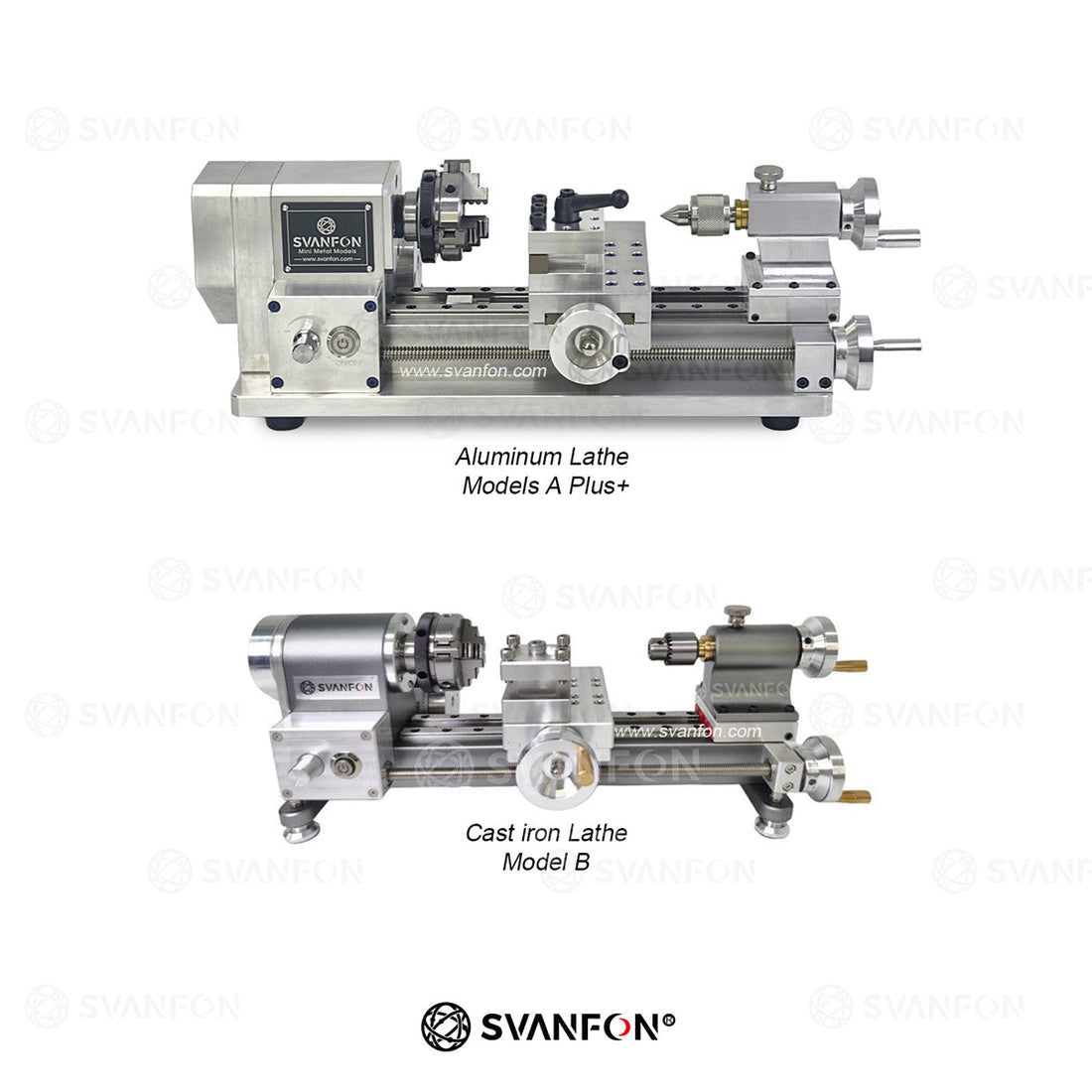
How to Choose the Right Mini Lathe: A Practical Guide for Beginners and Hobbyists
Jeffan SvanfonHow to Choose the Right Mini Lathe: A Practical Guide for Beginners and Hobbyists
Mini lathes are essential tools for those working on small metal parts, jewelry, or mechanical DIY projects. But with so many models on the market, how do you know which one is right for you?
This guide walks you through the critical aspects you need to understand before making your purchase.
🔧 1. Understand What You’re Making
The first step in choosing a mini lathe is identifying what you’ll be using it for:
Jewelry & Watch Parts → Requires precision and clean finish.
Model Engineering (e.g. trains, engines) → Needs versatility and stability.
Repair Projects (e.g. knobs, gears) → Requires material compatibility and moderate torque.
Teaching & Demonstration → Needs compactness and ease of use.
Knowing your main use case helps determine the specs that matter most to you.
⚙️ 2. Material Compatibility
Not all mini lathes are made equal. The Svanfon Mini Lathe has two main material types:
Model A – Aluminum Alloy Frame
Suitable for soft metals (aluminum, brass), wood, and plastics. Lightweight and easy to transport.
Model B – Cast Iron Frame
Heavier, more stable, and capable of light-duty turning on steel and harder metals.
Tip: If you plan to turn harder metals or need a more vibration-resistant base, go with cast iron.
⚡ 3. Check Motor Power and RPM
A mini lathe’s power affects what materials it can cut and how smoothly it can operate. Key specs to compare:
| Feature | Model A | Model B |
| Rated Voltage | 220V | 220V |
| Motor Speed | 3000 rpm | 6000 rpm |
| Max Power | 60W | 80W |
Higher RPM = better finish for soft metals
Higher torque (like Model B) = better for heavier cuts
🧰 4. Clamping and Stroke Capacity
Your lathe must fit the parts you're working on:
Max clamping diameter: 50mm
Max clamping length: 110 mm
Spindle bore: 9 mm (Model B only)
Also consider the stroke of each axis for movement freedom:
X-axis: 50mm
Z axis: 70–80 mm
Tailstock: 20 mm
👉 5. Additional Features to Look For
✅ Upgraded model options (like Model A Plus)
✅ Simple operation panel
✅ Emergency stop switch
✅ Chuck compatibility
✅ Parts availability
🎯 Final Advice: Match the Tool to Your Goals
If you're a beginner, start with the aluminum alloy version — it's easier to handle and forgiving.
If you're experienced and plan to cut harder metals or need more durability, the cast iron version is the way to go.
No matter your choice, the Svanfon Mini Lathe gives you an excellent balance of quality, precision, and value.

1 reactie
Ce preț are cu trimitere prin curier,cu verificare cu deschidere,cu plata ramburs la primirea coletului ❓